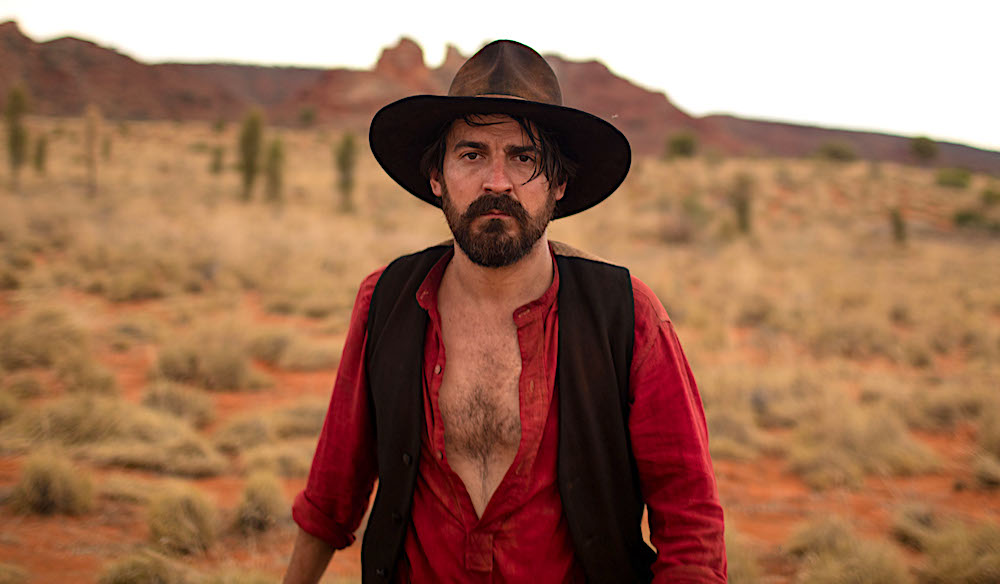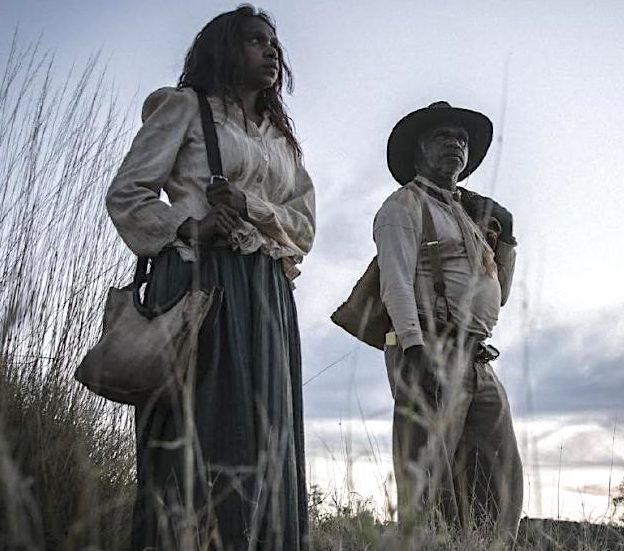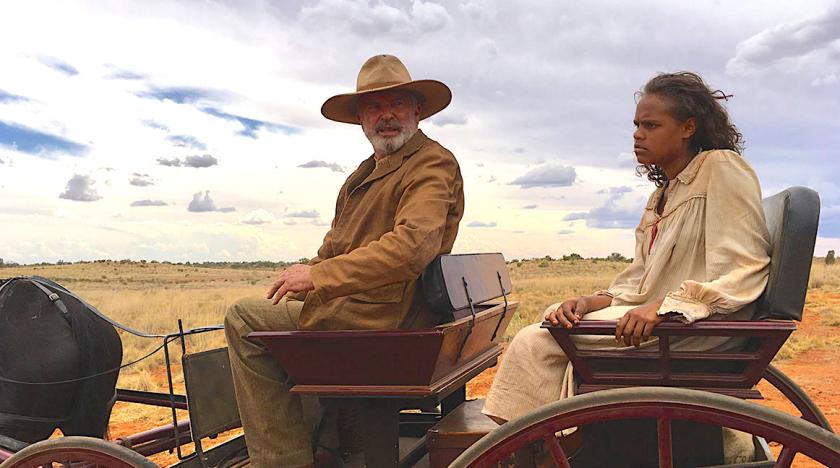Recently the world has been entertained by the shameless amateur theatricals from some of Australia’s lavishly-paid cricketers, but Warwick Thornton’s Sweet Country transports us back to a harsher, crueller Australia, where men might have justifiably shed a tear as they scraped a hard living from the land and broiled under a crushing sun. Set in 1929, the film also depicts a world where brutish racism was taken for granted, and Aboriginal workers were treated little better than farm animals.
At its core is the tightly-wound, powerfully dramatic story of Sam Kelly (Hamilton Morris), a stockman employed at the Black Hill farm by Fred Smith (Sam Neill), a God-fearing teetotaller who treats his workers with rare sympathy. Trouble begins when Fred gets a visit from Harry March (Ewen Leslie, pictured below), who has just taken over the nearby North Creek station. He needs some help, and persuades a reluctant Fred – who doesn’t like the way March refers to the Aboriginals as “black stock” – to let him borrow Sam to do some necessary jobs.
 This goes about as badly as it could have done, with March treating Sam with contempt and his wife Lizzie far, far worse (Sam’s young niece Lucy is lucky to escape from March’s lascivious violence). Via further exhibitions of March’s depraved cruelty, the action builds to a pivotal confrontation between Sam and March, which forces Sam to take fatal self-defensive action.
This goes about as badly as it could have done, with March treating Sam with contempt and his wife Lizzie far, far worse (Sam’s young niece Lucy is lucky to escape from March’s lascivious violence). Via further exhibitions of March’s depraved cruelty, the action builds to a pivotal confrontation between Sam and March, which forces Sam to take fatal self-defensive action.
Vile as March is, there’s some nuance in his portrayal. We learn that he spent three years on the Western Front (“not much sign of the Lord there,” he tells Smith), and has returned from the war irreparably damaged. A raging, depressive alcoholic, he parades on his porch with his army Lee-Enfield rifle, and fixes bayonets when he comes looking for Sam, barking out orders like a drill sergeant. As Sam himself puts it, “he was a bit mad, that fella.”
As Sam and Lizzie take flight on foot into the Outback, where Sam’s skills at tracking and living off the land enable him to outwit comfortably the pursuing posse led by police sergeant Fletcher (Bryan Brown), the story (via an impressively lean screenplay from David Tranter and Steven McGregor) asks metaphysical questions about place, identity and ownership. A bloody encounter with a group of tribal Aboriginals living in the remote hinterlands suggests the ancient, unfathomable strangeness of the country, while the white interlopers seem to be clinging precariously to their little patches of earth, as if they might simply be brushed aside without a second thought. Sam (pictured below with Lizzie) manages to put the idea into words quite eloquently when talking about one of his pursuers, Mick Kennedy: “He’s got no lore, wherever he travels he’ll never know anything… no lore, no dreamtime stories.”
 In what you could call the third act, there are at least a couple of cheers for the white man’s law and order, when Judge Taylor (Matt Day), convening his ramshackle court opposite the town tavern while the locals cat-call from their deckchairs, brings in a verdict in favour of common sense and sound judgement. But perhaps above all, in a film striking for its absence of background music, the story is told through natural ambient sounds and some glorious cinematography.
In what you could call the third act, there are at least a couple of cheers for the white man’s law and order, when Judge Taylor (Matt Day), convening his ramshackle court opposite the town tavern while the locals cat-call from their deckchairs, brings in a verdict in favour of common sense and sound judgement. But perhaps above all, in a film striking for its absence of background music, the story is told through natural ambient sounds and some glorious cinematography.
Thornton is also director of photography and has a wonderful eye for the texture and drama of landscape, and the narrative is signposted with a string of resonant compositions – Sam and Lizzie sitting under a full moon drinking from a leather water-bag, Fred Smith walking away into the gloomy bush as a brilliant rainbow hangs in the sky, men and horses straggling across the flat landscape under menacing purple storm clouds. Most arresting of the lot are scenes set on a stunning white desert, across which Sergeant Fletcher and his horse drift spectrally like characters from Lawrence of Arabia. Thornton, himself an “Indigenous” Australian, has been in films for more than 20 years, but this feels like the arrival of a major talent.













Add comment